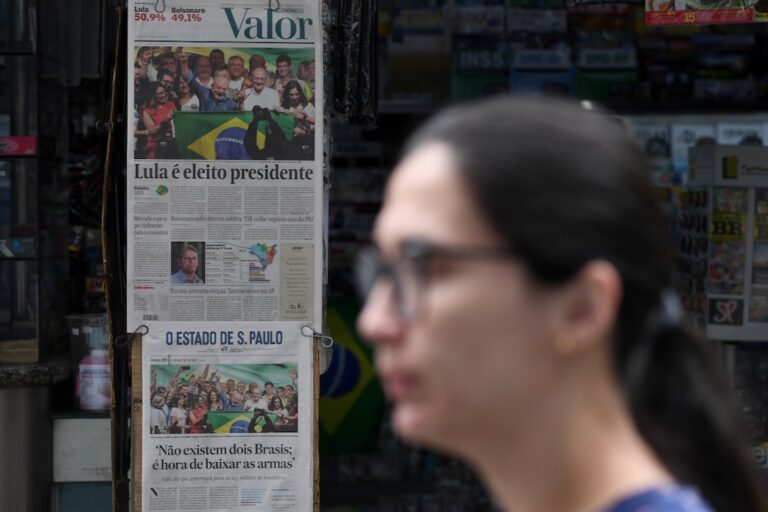(IAPA/IFEX) – The following is a 10 August 2004 IAPA press release: IAPA sees move in Brazilian Congress as contrary to free speech, press freedom MIAMI, Florida (August 10, 2004) – The Inter American Press Association (IAPA) today described as a serious attack on free speech and press freedom a bill sent to Congress that […]
(IAPA/IFEX) – The following is a 10 August 2004 IAPA press release:
IAPA sees move in Brazilian Congress as contrary to free speech, press freedom
MIAMI, Florida (August 10, 2004) – The Inter American Press Association (IAPA) today described as a serious attack on free speech and press freedom a bill sent to Congress that seeks to impose controls on the news media and set stiff penalties for non-compliance.
The chairman of the IAPA’s Committee on Freedom of the Press and Information, Rafael Molina, said the bill, introduced by Brazilian President Luís Inácio Lula da Silva for debate in the Chamber of Deputies and the Senate, “is a clear attempt to control the news and punish journalists.”
Molina, of the Santo Domingo-based newspaper El Nacional in the Dominican Republic, issued a public call to the Brazilian president to “reconsider your stance and withdraw the measure.” He called the proposed law an attempt at censorship that, if approved, “would establish a serious precedent for freedom of expression and freedom of the press by setting standards on how news should be handled.”
Under the terms of the bill, a Federal Press Council would be set up with offices in each of the nation’s 26 states, with authority to “guide, discipline and oversee” the practice of journalism and punish those who act “irresponsibly.” Those found in breach of the law could face warnings, fines, censorship, or suspension of their professional licence for 30 days or even permanently. Journalists would be required to register with the Council in order to work in the country.
Molina quoted the Inter-American Commission on Human Rights’ Declaration of Principles of Freedom of Expression, which, in Article 1 states, “Freedom of expression in all its forms and manifestations is a fundamental and inalienable right of all individuals. Additionally, it is an indispensable requirement for the very existence of a democratic society.”


